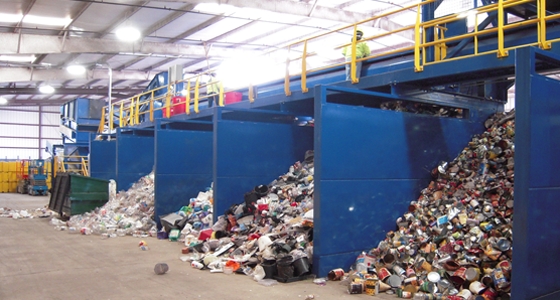The Kuwait Municipality director, Eng. Ahmed Al-Subaih, said that the problem of getting rid of solid, constructional and municipal waste would be solved soon as the municipality has drafted a plan to build three new recycling plants in compliance with a study carried out in conjunction with the World Bank.
Speaking to reporters, he also noted that the problem related to tires had been solved by resolution 75/5646 made by a ministerial committee on September 20, 2012 that emphasized the significance of making utmost use of tire constituents and safely getting rid of the remnants in a bid to curtail the use of land as landfill sites. Further, Al-Subaih stressed that Kuwait led other Arab countries in building and operating a plant to recycle construction waste in 2004.
The plant was built as per the BOT model and was being run by Kuwaitis under the management of the Environment Preservation Industrial Co. (EPIC) and the Arab International Industrial Projects Co (AIIPC). "Much effort has been exerted and more was still needed to recycle this waste," Al-Subaih pointed out, noting that about 18,000 to 20,000 tons of construction waste was being produced every day in Kuwait. He added that many GCC and Arab municipal officials visited and appreciated the plant.
Moreover, Al-Subaih stressed the significance of sponsoring and supporting KWMCE which is held annually in Kuwait and attracts a large number of GCC municipal officials as well as local and international companies specializing in high-tech equipment used in recycling all sorts of waste, be it household, construction, electronic, water or dirt resulting from oil drilling and petrochemical processing, contaminated medical waste and sewage.
Al-Subaih also highlighted that the solid waste management project envisages receiving waste and sorting it before recycling it or designing and building a hygienic landfill site to rid it of post-recycling residues. "On an average, about 6,000 tons of such residues are being produced," he remarked, pointing out that recent statistics showed that at 1.5 kg, Kuwait has one of the world's highest per capita daily waste generation. "Though relatively small in area, the amount of waste generated in Kuwait has become so high that it has made Kuwait municipality even more responsible to protect the environment through administering landfills, establishing projects to dispose of or recycle waste besides creating awareness enhancing campaigns amongst citizens and expatriates.
Only then would they feel inspired to accept the idea of separating and categorizing their household waste which would lead to a cleaner and healthier environment and sustain our resources," he reiterated.
Kuwait Times
3 January







































































